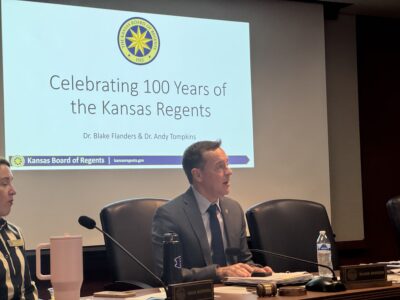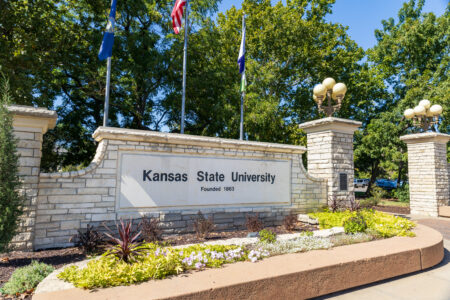Campa-what? A pronunciation guide to campus buildings
Pronunciation guide
The “correct” and alternative KU building pronunciations:
Fraser Hall
FRAY-zhur
Campanile
camp-uh-NEE-lee
alternative pronunciation: camp-uh-NEEL
Haworth Hall
HAH-worth
alternative pronunciation: HAY-worth
Horejsi Family Athletics Center
HORE-ish
Max Kade Center
KAH-deh
Stauffer-Flint Hall
STAW-fer
Stauffer Place Apartments
STOH-fer
Budig Hall
BEW-dig
Anschutz Library
AN-shoots
Learned Hall
LERN-ed
Malott Hall
Mah-LOTT
Twente Hall
TWEN-tee
Nothing screams freshman like mispronouncing one of the names of the 150 buildings on Kansas University’s campus

The campanile on the University of Kansas campus is one of Lawrence's most prominent landmarks.
But how do you figure out the correct way to pronounce a name?
“We get these questions (about building names) every single day,” director of KU Info Curtis Marsh said.
Marsh said part of the KU culture is wanting to honor traditions. Everyone wants to do and say things the “right” way, and one of those things is pronouncing the buildings correctly.
KU’s building directory is online, www.buildings.ku.edu/, and it includes a guide to how the university administration wants the buildings to be pronounced.
But there is still controversy and confusion. There are alternative pronunciations based on what students and community members call the buildings.
The names of three places on campus are questioned most often: Haworth Hall, the Campanile and Fraser Hall.
Marsh answers the question with the pronunciation provided by the building directory, but he is sure to inform anyone asking about the alternative pronunciations because students don’t always say the name of the building the way the building directory says to.
“The alternate pronunciations are not inaccurate; they are culturally different,” Marsh said.
Many of the buildings are named after actual people, making the pronunciation even more difficult to figure out. To know the correct way to say the person and building’s name, it is necessary to know how the family said the name.
Haworth is one of the buildings more often pronounced with its alternative enunciation. The building directory says it is pronounced HAH-worth, but many people refer to the building as HAY-worth.
“Most people pronounce it a different way than the (supposed) correct pronunciation,” Marsh said. “This is one that people constantly question.”
Whether you choose to follow the directory’s way or the alternative, technically there is no right or wrong.
“Language changes, so there really isn’t something that’s correct,” said Jie Zhang, associate professor and director of graduate studies in phonology. “What’s used is what eventually becomes correct.”







